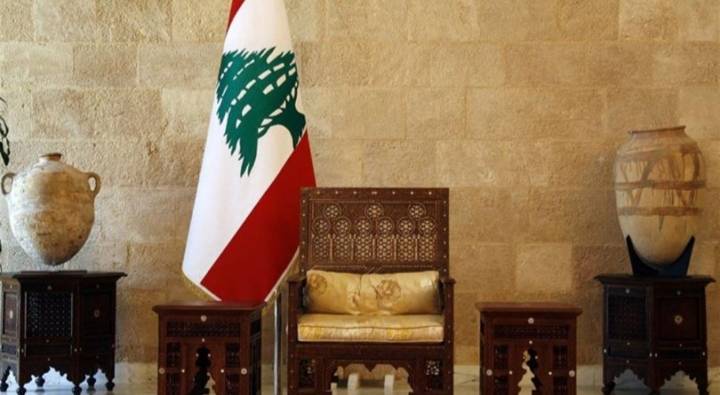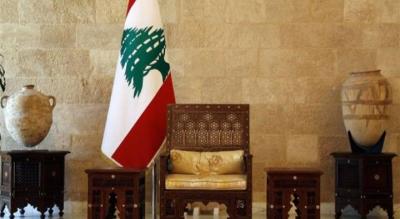The Lebanese political forces and members of the civil bloc are cautious about entering the names of candidates for the presidency before eighty days remain in President Michel Aoun's term. Discussions within parliamentary blocs and with other factions focus on the qualifications of the president, suggesting that he should be "open to everyone, enjoy internal political consensus, and be capable of engaging the international community to put Lebanon on the path to recovery."
The election of a president requires the presence of two-thirds of the members of the Parliament in the election session and a two-thirds majority in the first round of voting. This necessitates intersections and agreements among political blocs, even those that are politically divergent, a dialogue that began last month to rally support for candidates with qualities that most parliamentary factions agree upon.
The reluctance to name presidential candidates extends to the civil bloc known as the "change-makers," who have discussed qualifications in recent weeks without delving into specific names, according to sources following the meetings of the 13 members. They indicate that some members are communicating with opposition political forces while others reach out individually to different groups, attempting to gather impressions and crystallize agreements on the upcoming election.
The change-makers align with some political forces on certain issues, but diverge on others, particularly exhibiting a lack of enthusiasm for supporting partisan or military figures. This contrasts with the Lebanese Forces Party, which supports Army Commander Joseph Aoun if a consensus is reached on him. Nonetheless, some change-makers share common ground with the Lebanese Forces, the Kataeb Party, and the Progressive Socialist Party, advocating that the president must uphold sovereignty, support judicial independence, and push for it as the cornerstone for building a state that embodies transparency, accountability, and anti-corruption efforts. They also intend for the president to drive the approval of a financial and economic recovery plan, steering the country toward economic solutions.
Members assert their openness to all options apart from the proposed political figures. MP Ibrahim Mneimenah states to "Asharq Al-Awsat" that discussions are still ongoing, and they are working to clarify their vision. He mentioned that his personal stance, shared by many in the change group, leans towards finding a "president with a reformative vision in political and economic terms, providing a glimmer of hope for the Lebanese through implementing reforms, including preliminary agreement with the IMF and advancing with political reforms."
Mneimenah notes that the general direction of the desired presidential qualities is for the president to be centrist, not aligned with any regional axes, and loyal solely to Lebanon, highlighting the necessity for the president to "have international relations and consensus for re-establishing ties that have deteriorated with Arab and friendly nations" and to embody a political reform identity which he sees as a necessity for Lebanon under current circumstances.
Regarding the reluctance to support a military figure, Mneimenah indicates that this issue has not been heavily discussed, but he does not deny that "our platforms as reforming forces for a long time have favored distancing the military from political conflicts to strengthen the immunity of military and constitutional institutions," stating that they prefer a civilian president.
Sources close to the discussions indicate that the scenario of division seen in the nomination of Ambassador Nawaf Salam for the premiership may reflect the situation for the presidency. Mneimenah emphasizes, "We aspire to be a united bloc striving to take the initiative to outline our vision based on qualifications, which enable us to engage with other blocs and establish common ground and intersections, starting from the qualifications to the name of the president."
Contrary to the change forces searching for centrist and non-aligned qualities, other political factions insist that the president be "sovereign," meaning not aligned with the Iranian axis. This view is supported by parties like the Lebanese Forces and the Kataeb, alongside other sovereign parliamentary figures. Meanwhile, Hezbollah remains one of the silent players thus far, having not declared support for any presidential candidate, although it has proximity to the head of the Free Patriotic Movement, MP Gebran Bassil, and the head of the Marada Movement, Sleiman Frangieh.
The Lebanese Forces, alongside the statements of their party leader Samir Geagea as the natural candidate, aims to prevent a president representing the "March 8" forces from succeeding to the presidency. The Marada Movement believes that the president should be consensual for the benefit of Lebanon, while the Amal Movement, led by Speaker Nabih Berri, insists that the president should possess "an Islamic, Christian, and most importantly national flavor," aligning somewhat with the qualities proposed for President Fouad Siniora, who argues that the presidential election is not solely a Christian affair.
In contrast, the Free Patriotic Movement insists on the principle that the person occupying the presidency must possess the primary quality of popular representation, stating "in respect of the national political will expressed by the Lebanese in the parliamentary elections and the established principle of respecting the true representation of those who hold constitutional responsibilities, primarily the presidency, otherwise, what is the purpose of democracy, elections, political action, and the existence of parties if we disregard the principle of respecting popular representation?"




